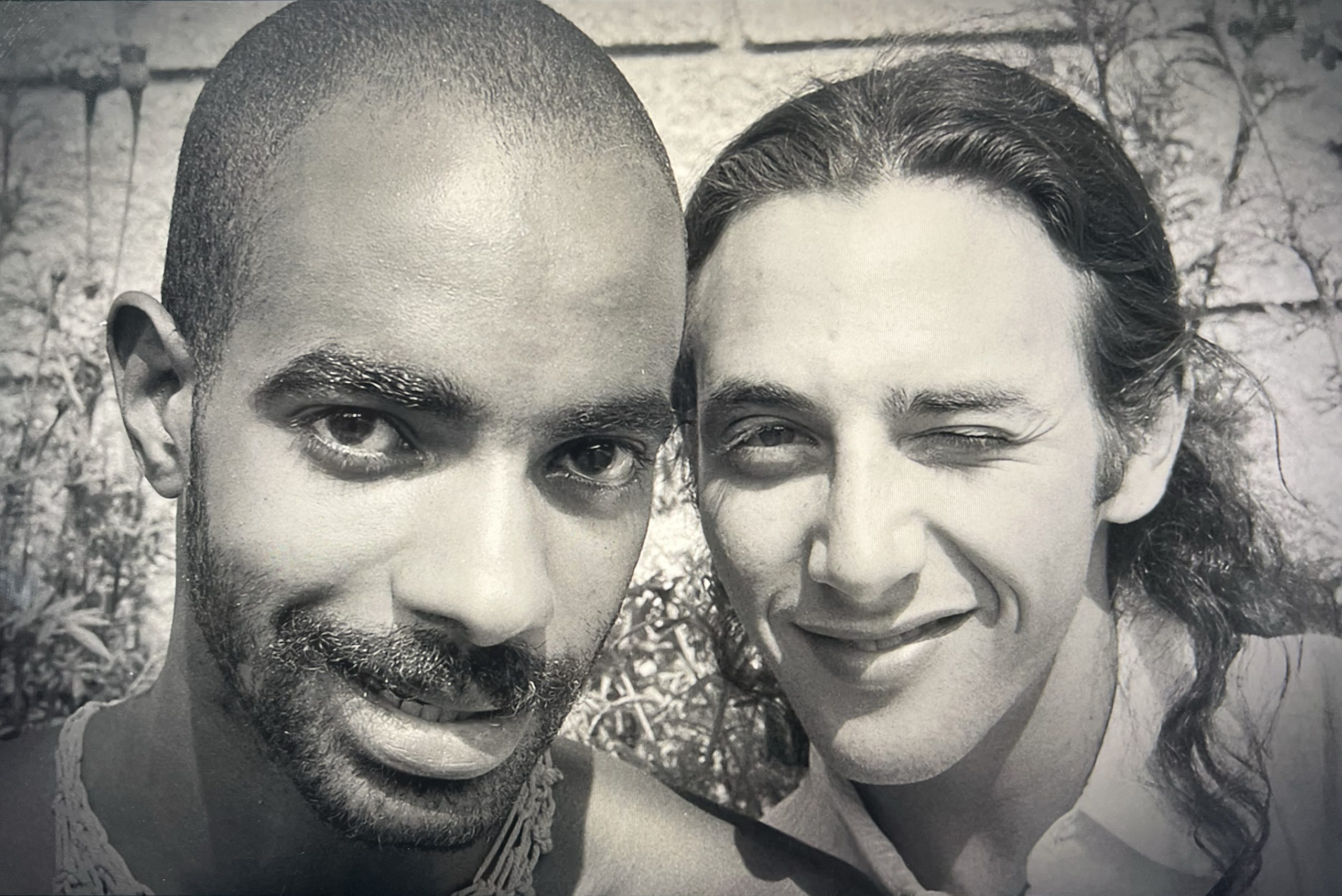PEE-WEE’S BIG SELFIE
By:
June 9, 2025
One in a series of occasional detours from Adam McGovern’s irregularly scheduled column OFF-TOPIC.

Pee-wee Herman wasn’t everything, but he may be the gateway to it. So surrounding that it takes you a while to realize how extraordinary it is, you learn from the two-part Pee-wee as Himself documentary series that Paul Reubens may have had the most media-documented life of any person not born famous for the next 60 years. By the end of the first episode there hasn’t had to be a single reconstruction, with copious photos and footage from childhood onward (and not just comprehensively documented college performances etc., but a home-movie panopticon that seems to have been hovering at all times). No one in the 1950s-through-’70s thought there would be an outlet in posterity for such material (much less the instantaneous stage we now all theoretically have through social media), so this makes Reubens, though two-years dead by the time the show begins, feel like he was always from the future.
The collateral texture of the decades he developed in that accumulates in this archival material is almost like time-travel, painting cultural moments with a rare completeness and our sense of the context of his lifetime with an uncommon intimacy. This for me casts Reubens as one of those fulcrum characters in a multiversal fantasy, a prism that his eccentric influences pour into, projecting back out a 21st century the audience recognizes even better than the one it’s been living in.
I wonder if this is a Jewish thing; we adapt to the many environments we’re driven away into, and tend to adopt what’s new before many others do because to us, everything is; we also (especially Reubens’ generation and his parents’) may have a heightened urgency to prove we were ever here, in case one day we aren’t. It’s staggering to think that contemporaneous culture-code subversives like DEVO have a fraction of the footage from their formative years that Pee-wee Herman does, but then, their medium was media, and Reubens’ media is the self.
Not just his self, though he seems to have been an artisan of solitude in his personal life (see below); Pee-wee was a symbol of standing out, not in loneliness but celebrated singularity; in his universe, everyone is special and you are your own descriptive adjective (whether your name is Chair-y or your trait is to be ummm, chocolate-y).
That doesn’t mean we each have just one story to tell. Though he expresses a motivation to set some records straight at the outset, there’s a lot of record here to say whatever it wants. That includes the extensive domestic footage of his partner Guy, with whom he long lived as husband-and-husband before there was any such thing in the eyes of the law, and which he comes to refer to, echoed (enabled?) by family/supporters, as “playing house.” It’s a strangely sheltered way of putting something which, at the time they were doing it, posed existential risk, but nonetheless Reubens dumps bliss to reaccess his own “personality” and pursue his career.
In the process he describes (with a signature mix of zero regret and 110% honesty) how he traded his full house for a portable closet, re-submerging his gay identity for years to get roles. Considering the quintessential queerness of everything that was most successful for him that’s one of his best jokes ever, but it is worth reflecting how based in small rooms those successes were — many of us first see him on a tiny comedy-club stage in a Cheech & Chong movie, and his hit breakthrough special and kids’ show mostly took place in the three-walled living room of his, hmmm…“play house.” In the course of the 40 hours of interviews he sat down for to anchor this film, he tries to reconstruct the fourth wall many times, grappling with the director over what to reveal and how to spin it, in a way which draws lines around his secret and for-publication selves more fully than he may have realized or the filmmaker could have hoped. (Or it’s possible he saw this was a favorable outcome, since he stops participating late in the process but presumably understands the film will still be made.)
Paul Reubens would not be boxed in, but he was partitioned carefully; having sworn off relationships like the one he had with Guy, he ended up with Pee-wee as a kind of lifetime co-personality. It goes way beyond a defining role or some typecast albatross, and Reubens navigated it gracefully. Still, the most perceptive decision of his life may have been to leave his self-portrait to someone else.
MORE POSTS by ADAM McGOVERN: OFF-TOPIC (2019–2025 monthly) | textshow (2018 quarterly) | PANEL ZERO (comics-related Q&As, 2018 monthly) | THIS: (2016–2017 weekly) | PEOPLE YOU MEET IN HELL, a 5-part series about characters in McGovern’s and Paolo Leandri’s comic Nightworld | Two IDORU JONES comics by McGovern and Paolo Leandri | BOWIEOLOGY: Celebrating 50 years of Bowie | ODD ABSURDUM: How Felix invented the 21st century self | KOJAK YOUR ENTHUSIASM: FAWLTY TOWERS | KICK YOUR ENTHUSIASM: JACKIE McGEE | NERD YOUR ENTHUSIASM: JOAN SEMMEL | SWERVE YOUR ENTHUSIASM: INTRO and THE LEON SUITES | FIVE-O YOUR ENTHUSIASM: JULIA | FERB YOUR ENTHUSIASM: KIMBA THE WHITE LION | CARBONA YOUR ENTHUSIASM: WASHINGTON BULLETS | KLAATU YOU: SILENT RUNNING | CONVOY YOUR ENTHUSIASM: QUINTET | TUBE YOUR ENTHUSIASM: HIGHWAY PATROL | #SQUADGOALS: KAMANDI’S FAMILY | QUIRK YOUR ENTHUSIASM: LUCKY NUMBER | CROM YOUR ENTHUSIASM: JIREL OF JOIRY | KERN YOUR ENTHUSIASM: Data 70 | HERC YOUR ENTHUSIASM: “Freedom” | KIRK YOUR ENTHUSIASM: Captain Camelot | KIRB YOUR ENTHUSIASM: Full Fathom Five | A 5-part series on Jack Kirby’s Fourth World mythos | Reviews of Annie Nocenti’s comics Katana, Catwoman, Klarion, and Green Arrow | The curated series FANCHILD | To see all of Adam’s posts, including HiLo Hero items on Lilli Carré, Judy Garland, Wally Wood, and others: CLICK HERE
